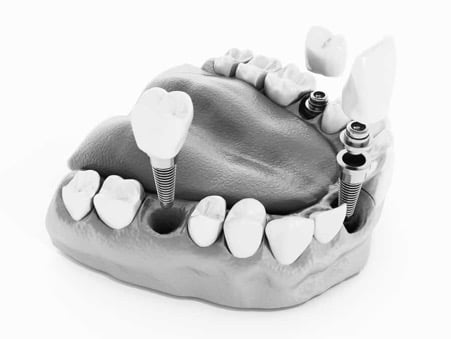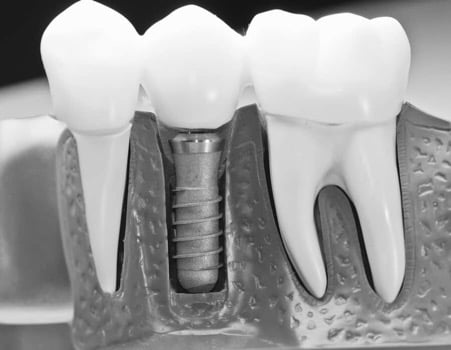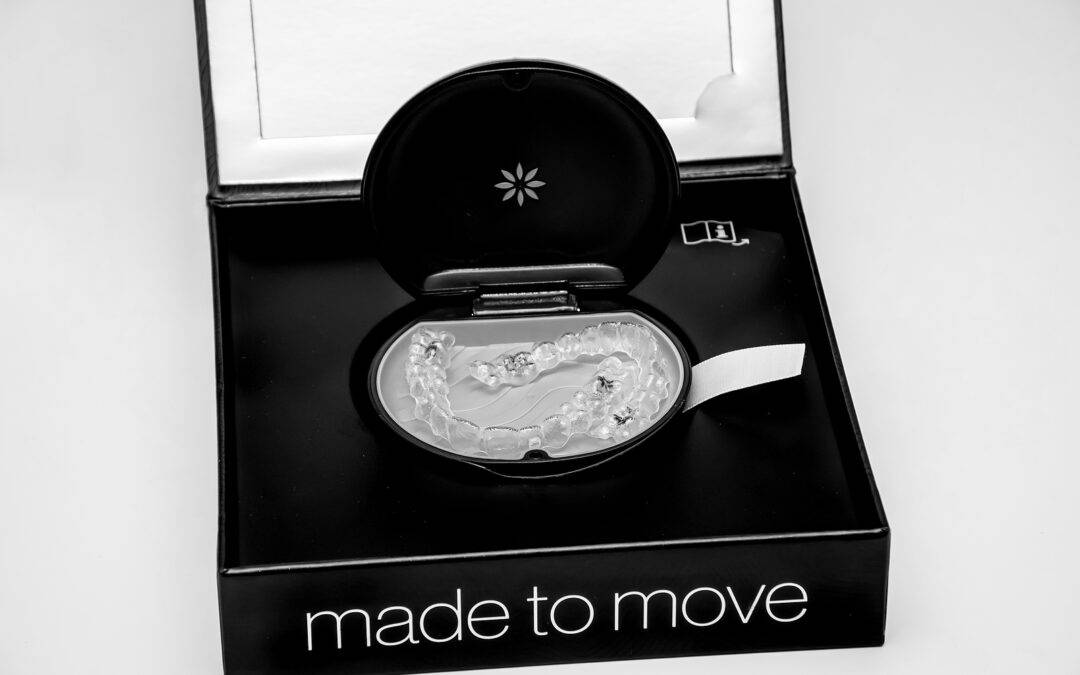Tooth implants (more commonly known as dental implants) act to replace missing teeth with artificial teeth that look and feel just like the real thing. The tooth implant procedure is a surgical procedure that is conducted in a dental surgeon’s clinic. On completion of a dental implant procedure, the implant is permanent and looks exactly like the surrounding natural teeth.
Who is a Good Candidate for Tooth Implants?
If you are missing a single tooth, a few teeth or even a full arch, you could consider getting dental implants. A full arch will replace loose bulky dentures with a fixed or removable solution. Consult your dentist to find out if you are a good candidate for the procedure. You can get a dental implant if:
- You have strong gums and sufficient bone in your jaw.
- Your jawbone has reached full growth.
- You don’t have any medical conditions that affect bone growth or healing.
- You are willing to wait several months for the end results.
Your dentist will give you a full oral examination and take x-rays of your teeth and jaws to determine if a dental implant procedure is right for you.
The Tooth Implant Procedure

A tooth implant procedure can stretch over several months. The procedure is as follows:
- Bone Grafting: The dentist will first have to make sure that your jawbone is able to support the implant. If there has been any bone loss due to the missing tooth, bone grafting will first have to be carried out. Bone grafting is done by introducing bone either from another part of your own body or an artificially prepared one, into the area where more bone is required. The graft acts as scaffolding, causing more bone to regenerate around it. It could take a few months for the graft to take hold and the bone to regenerate. Once there is adequate bone mass, the procedure can move forward.
- The Implant: To introduce the implant, the dental surgeon will first give you a local anaesthetic and maybe sedation also. Once you are ready, a small hole is drilled into the bone under the gum and the titanium implant is screwed in. The gum is then stitched up. The implant mimics the root of the tooth and will hold the replacement tooth to be fitted. A few months are required for the bone to fuse around the implant and fix it firmly in place.
- The Abutment: Once the bone and implant have fused, an abutment (the piece where the crown will eventually attach) is fitted to the implant which extends above the gumline. When the gum heals around the abutment, the new tooth can now be fixed on.
- The Crown: The new tooth or teeth are prepared by taking moulds of the existing teeth to get an idea of the size and shape the replacements should be. The colour of the replacement(s) is also matched to the existing teeth.
Aftercare for Tooth Implants
You should brush your teeth regularly and care for your implants just as you would your natural teeth. Floss at least once a day and visit the dental hygienist twice a year. Avoid excess caffeine, red wine and tobacco which can stain the teeth. Hard foods such as boiled sweets can damage tooth implants and are best avoided.
Dental implants are a great way to regain your perfect smile. Take care of them well and enjoy the results for a lifetime.

How can Shields Dental & Orthodontic Clinic help?
Our team at Shields Dental & Orthodontic Clinic Limerick have the expertise and technology to deliver exceptional dental implant therapy. We offer a free first consultation worth €150 to discuss the treatment and we also offer a complimentary teeth whitening treatment to all tooth implant patients. You can view testimonials and read more about our tooth implant treatments.







